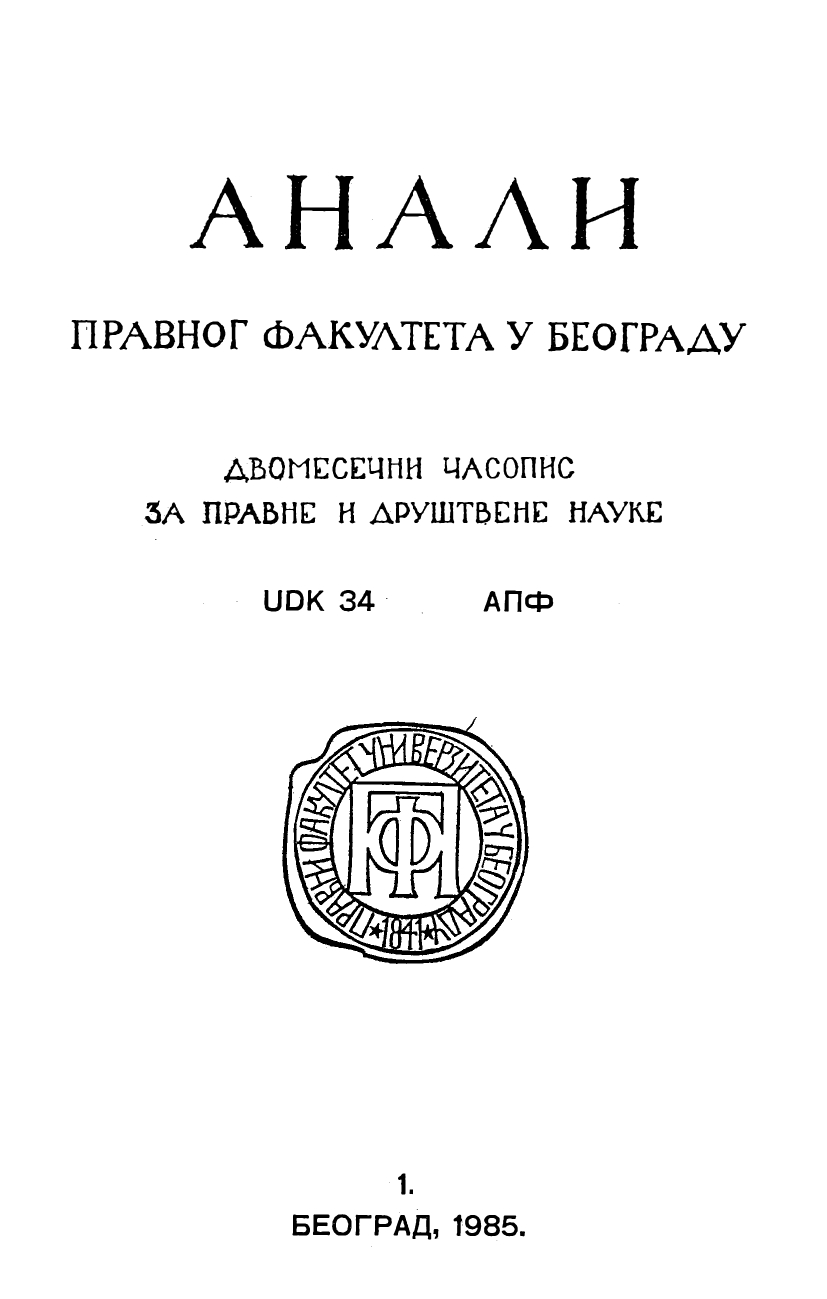НАУКА УПРАВНОГ ПРАВА У ИТАЛИЈИ
THE ADMINISTRATIVE LAW IN ITALY
Author(s): Feliciano BenvenuttiSubject(s): Law, Constitution, Jurisprudence, Administrative Law
Published by: Правни факултет Универзитета у Београду
Summary/Abstract: Italy competes with France for the honor of having giving birth to the Administrative law, because Romagnosi published his Basic principles of Administrative Law in 1818, before Macarel did it in Paris (1818). Period which runs to 1925 was reach in jurisprudential elaboration of Administrative law, and gave great Masters, Orlando being the most prominent. Their works are characterized by the influence of german authors, with their refined technicism. The second quarter of the century produced works of synthesis (Donato, Santi Romano, Presutti, Forti). Younger authors concentrated on the dogmatic analysis of individual institutes: the annulement of deeds, public property, administrative justice (Guicciardini). During the fascist period the science of Administrative law focused its attention to the problème of "justice in the administration". The Held of subjective rights has been reduced by the dichotomy: subjective rights — "legitimate interests" and by the impovrishment of the jurisdiction of the ordinary judge in favor of the administrative judge. The authors tended to avoid any political or sociological implication, their method being juridical dogmatism. After the constitution of 1948 the new tendencies occured. There were again the works of synthesis (Giannini, Benvenuti). Some monographies dealt with the new tasks of the state in the field of economy. Legitimate interests were equalized with the subjective rights. The present phase is supported by a renewed .political awarnesS. Jurists focused new themes, often with the new method: property, political and personal freedom, public economic enterprises, planning, industrial management, regions and local administration, public health and the protection of human environment. The problem of impartiality became one of the central topics. The structure and the activity of the administration are regarded in the light of the organisation and its effectivness. As a result, we may conclude: 1. the developpment of the science of Administrative law is linked to the political conditions; 2. this science must adjust itself to the needs of political life, tempering its abstract dogmatic interests with the demands of reality.
Journal: Анали Правног факултета у Београду
- Issue Year: 33/1985
- Issue No: 1
- Page Range: 10-20
- Page Count: 11
- Language: Serbian

